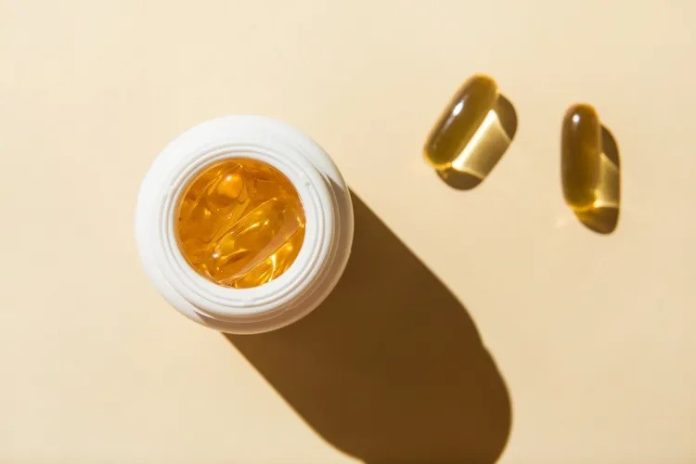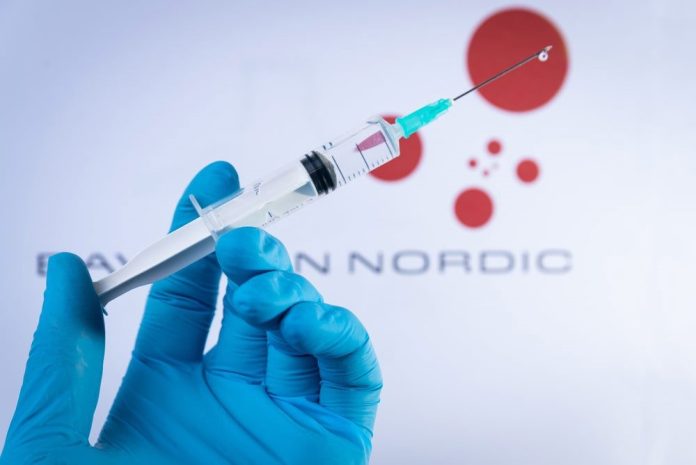What Happens When You Take Omega-3 and Vitamin E Together?
Key Takeaways
- You can take omega-3s and vitamin E together, but research on the combination is still limited.
- Some studies suggest potential benefits for insulin resistance, cholesterol, and oxidative stress with combined use, but more evidence is needed. Omega-3 and vitamin E also have distinct health benefits when taken individually.
- Talk to your healthcare provider before combining them, especially if you take blood thinners or have a bleeding disorder, since both supplements can increase bleeding risk.
Omega-3 fatty acids and vitamin E supplements can be taken together. However, the potential benefits of combining them are not well studied.
Can I Take Omega-3 Fatty Acids and Vitamin E Supplements Together?
A few studies show potential benefits, but overall, the effects of combining these supplements are not well researched:
- Insulin resistance: A small study found that combining the two supplements may have a beneficial effect on insulin levels and insulin resistance in people with coronary artery disease.1 More research is needed.
- Cholesterol: A systematic review and meta-analysis found that the two supplements may lower very low-density lipoprotein (VLDL), a type of cholesterol that carries triglycerides to your tissues. However, it did not affect other lipid profile parameters.2
- Oxidative stress: A meta-analysis showed that combining these supplements may help reduce oxidative stress by increasing nitric oxide levels, boosting antioxidant effects, and lowering malondialdehyde levels (a marker of oxidative stress).3
However, when taking supplements, you should discuss the following with your healthcare provider:
- Intended effect
- Which product is best to try (third-party tested products are recommended)
- Proper dosing
- Possible drug interactions
- Expected outcome
Since both supplements may increase bleeding risks, this should be discussed with your provider, especially if you take blood-thinning medications or have a bleeding disorder.
What Are Omega-3 Fatty Acids?
Omega-3 fatty acids are polyunsaturated fatty acids that have an anti-inflammatory effect.
The most common omega-3 fatty acids include alpha-linolenic acid (ALA), eicosapentaenoic acid (EPA), and docosahexaenoic acid (DHA).4
Omega-3 fatty acids are found in foods and available in supplement form. Good sources of omega-3 fatty acids in food include:4
- Fatty fish: Salmon, herring, sardines, mackerel, trout, oysters, seabass, cod, tuna
- Shellfish: Oysters, shrimp, lobster, scallops
- Nuts: walnuts
- Seeds: Flaxseed and chia seed
- Oils: Flaxseed oil, canola oil, soybean oil
- Beans: Edamame, kidney beans, baked beans
What Do Omega-3 Fatty Acids Do in the Body?
Omega-3 fatty acids from food or supplements may reduce:4
- Risk of heart disease5
- High triglyceride levels (mostly from supplements or prescription fish oil supplements)6
- Risk of pre-term birth in pregnant women7
- Risk of low birth weight7
- Symptoms of rheumatoid arthritis (RA)8
What Is Vitamin E?
Vitamin E actually refers to a group of fat-soluble compounds with antioxidant properties. Alpha-tocopherol is the most common of the compounds. Other compounds include beta-, gamma-, and delta-tocopherol, as well as alpha-, beta-, gamma-, and delta-tocotrienol.9
Good dietary sources of vitamin E include:9
- Oils: Wheatgerm, sunflower, safflower, corn, and soybean oils
- Sunflower seeds
- Nuts: Peanuts, hazelnuts, almonds
- Peanut butter
- Vegetables and fruit: Spinach, broccoli, kiwi, mango, tomato
What Does Vitamin E Do in the Body?
Vitamin E from food or supplements may:
- Provide antioxidants9
- Support immune function9
- Reduce risk of heart disease (vitamin E in the diet; vitamin E supplements don’t appear to reduce heart disease risk)109
- Slow progression of age-related macular degeneration (AMD)11
Risks of Taking Omega-3 and Vitamin E Supplements
Possible side effects of taking omega-3 fatty acids include:
- Unpleasant taste
- Bad breath
- Stomach discomfort4
Taking excess omega-3 fatty acids may also reduce immune function and increase bleeding risk, especially if taken alongside blood-thinning medications.
It is recommended to supplement with no more than 4 grams daily of omega-3 fatty acids unless prescribed differently by your healthcare provider.4
Vitamin E from foods is safe. However, taking excess vitamin E through supplementation may increase the risk of hemorrhagic stroke12 and prostate cancer.13
In the United States, the Food and Drug Administration (FDA) does not regulate dietary supplements the way it regulates prescription medications. As a result, some supplement products may not contain the ingredients listed on the label.
When choosing a supplement, look for products independently tested or certified by organizations such as NSF, U.S. Pharmacopeia, or ConsumerLab.com. For personalized guidance, consult your healthcare provider, registered dietitian nutritionist (RD or RDN), or pharmacist.










